
Vertihist 16mg Tablet
Manufacturer
Sunwin Healthcare
Salt Composition
Betahistine (16mg)
Key Information
Short Description
Vertihist 16mg Tablet is used to prevent and treat a disorder of the inner ear known as Ménière’s disease, which includes symptoms such as dizziness (vertigo), ringing in the ears (tinnitus), and loss of hearing, probably caused by fluid in the ear.
Dosage Form
Tablet
Introduction
Vertihist 16mg Tablet should be swallowed whole with water and taken at the same time(s) each day to get the most benefit. Your doctor will decide what is the correct dose to relieve your symptoms and how often you need to take it. You may need to take this medicine for several months and you should take it for as long as prescribed by your doctor even if you start feeling better. The most common side effects include headache, feeling sick, and indigestion (dyspepsia). You may also get stomach pain and bloating. Taking the medicine with food can help reduce stomach problems.
Directions for Use
Take this medicine in the dose and duration as advised by your doctor. Swallow it as a whole. Do not chew, crush, or break it. Vertihist 16mg Tablet may be taken with or without food but it is better to take it at a fixed time.
Safety Information
Side Effects
Headache Feeling sick Indigestion (dyspepsia) Stomach pain Bloating
Alcohol Warning
Consuming alcohol with Vertihist 16mg Tablet does not cause any harmful side effects.
Breastfeeding Warning
Vertihist 16mg Tablet is probably unsafe to use during breastfeeding. Limited human data suggests that the drug may pass into the breastmilk and harm the baby.
Pregnancy Warning
Vertihist 16mg Tablet may be unsafe to use during pregnancy. Although there are limited studies in humans, animal studies have shown harmful effects on the developing baby. Your doctor will weigh the benefits and any potential risks before prescribing it to you. Please consult your doctor.
Interacting Medicines
Astemizole Azelastine Buclizine Cetirizine
How it works
Vertihist 16mg Tablet is a histamine analog. It works by improving the blood flow in the inner ear which reduces the pressure of excess fluid there. Excess fluid can send signals to the brain causing nausea, dizziness or spinning sensations (symptoms of Ménière's disease). Vertihist 16mg Tablet additionally dampens down the nerve signals sent from the inner ear to the brain relieving the symptoms of Ménière's disease.
Quick Tips
You have been prescribed Vertihist 16mg Tablet to relieve vertigo (dizziness), hearing problems, and tinnitus (noise in the ear) associated with Ménière's disease. It can only decrease the number and severity of attacks but may not completely stop them. Taking it with food can help reduce stomach problems. Take it at the same time each day to maintain a steady amount of the medicine in your body. Inform your doctor if you have a history of stomach ulcer, asthma, or low blood pressure. Inform your doctor if you are pregnant, planning pregnancy or breastfeeding. Do not stop taking the medicine suddenly without talking to your doctor first.
Related Medicines
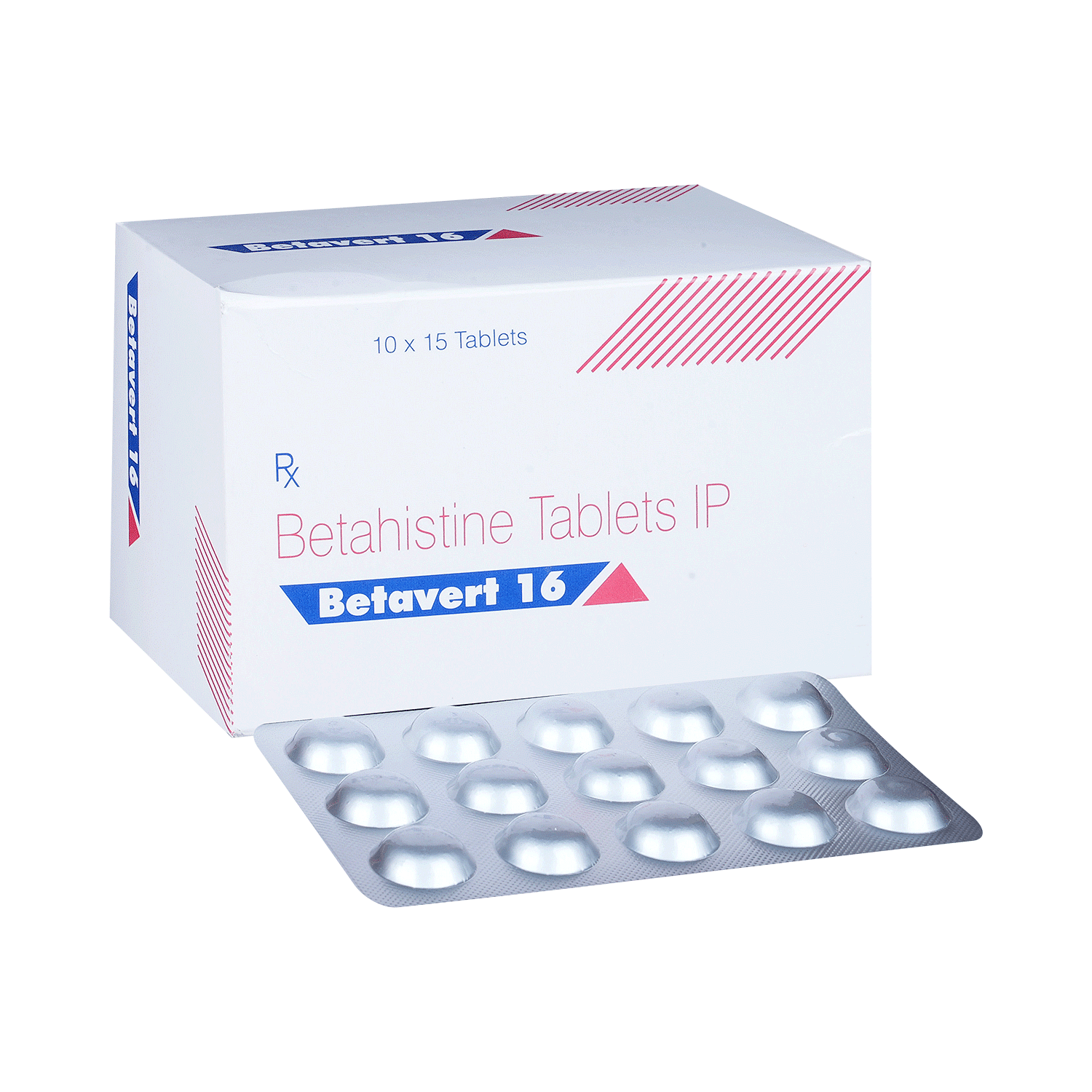
Betavert 16 Tablet
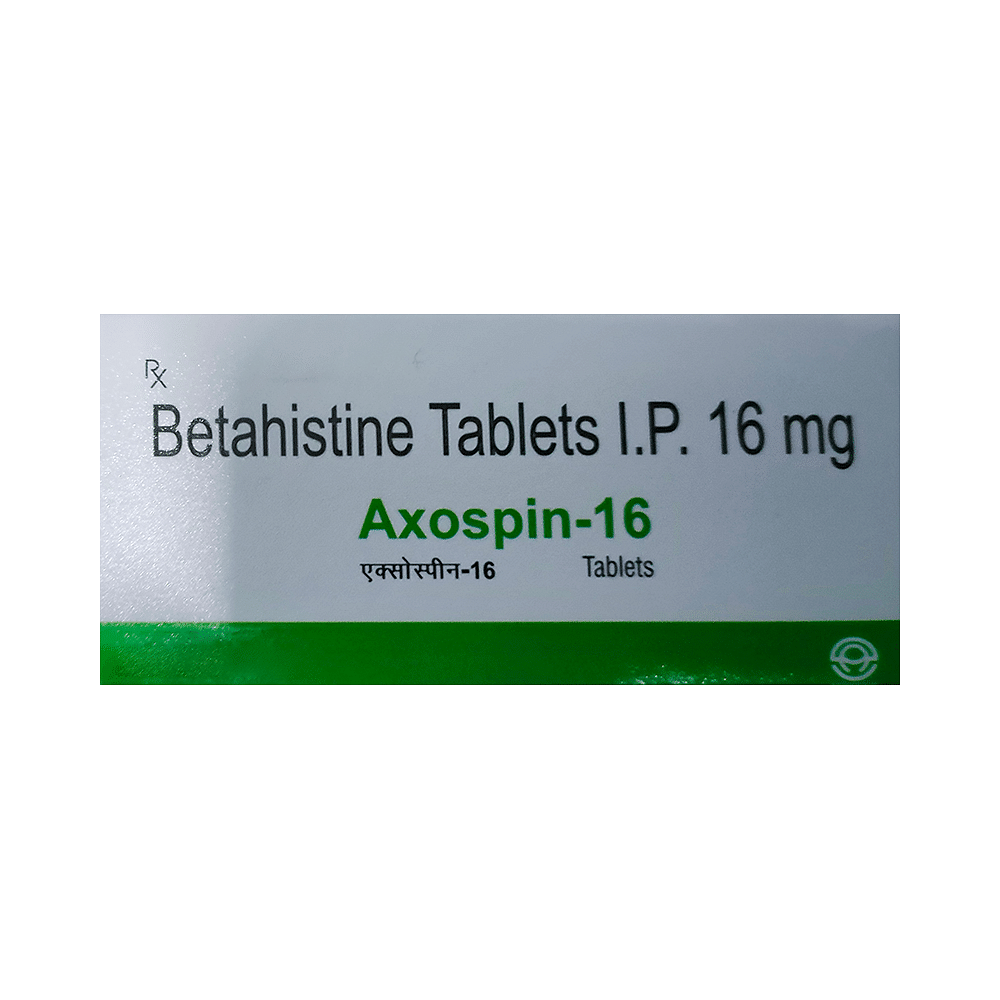
Axospin 16 Tablet
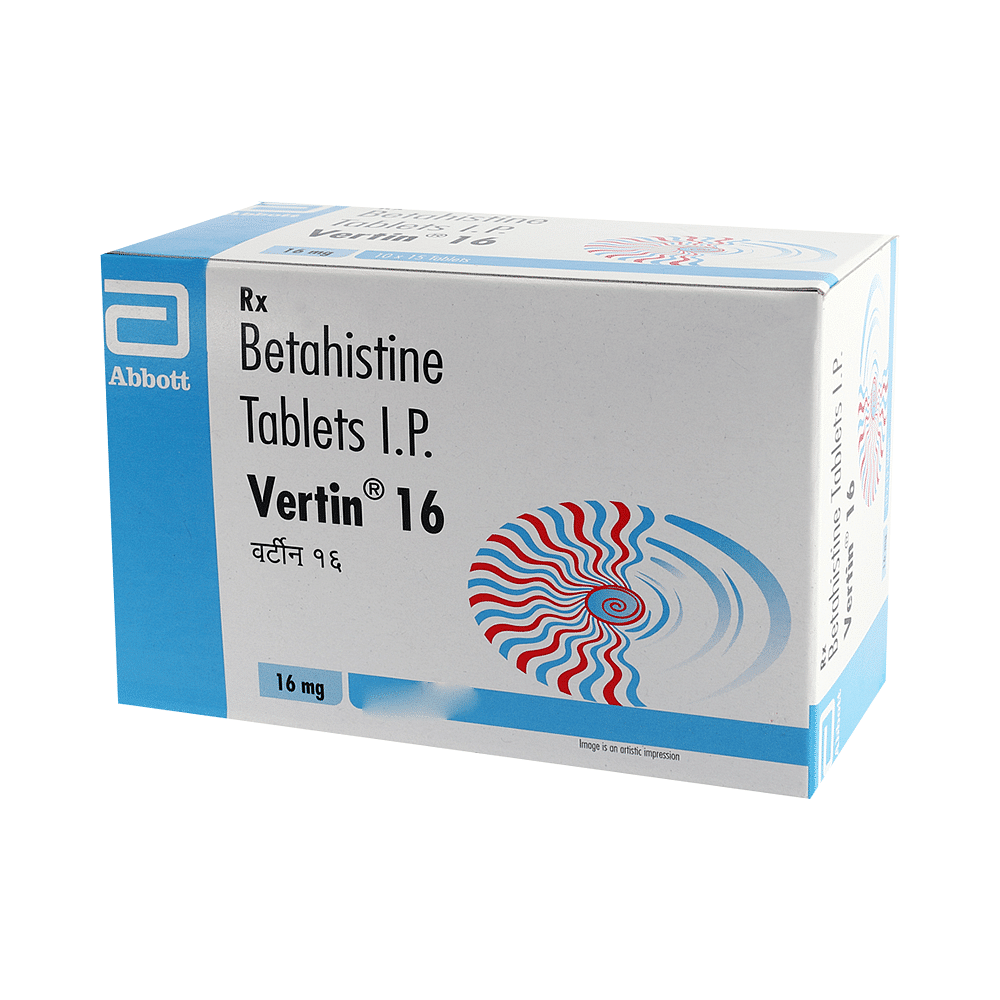
Vertin 16 Tablet
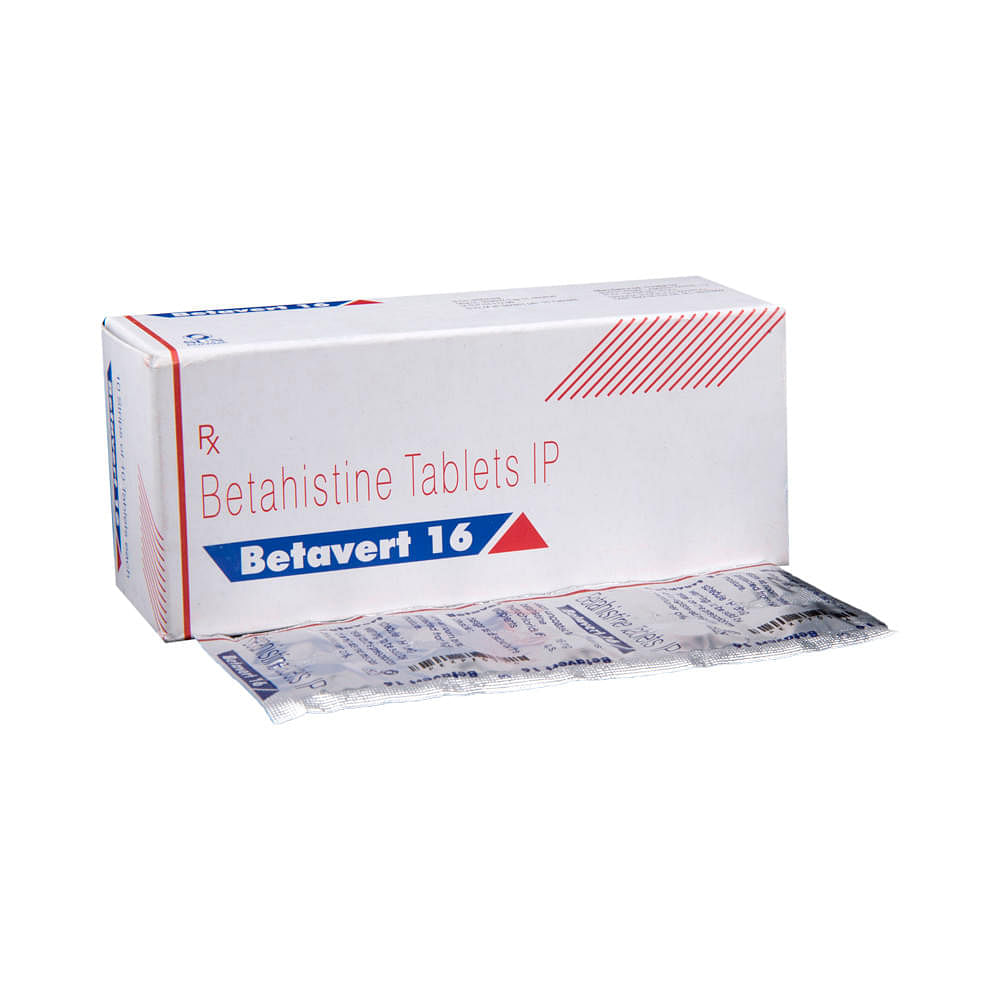
Betavert 16 Tablet

Vistin 16mg Tablet

Vertishine 16mg Tablet

Vertij 16mg Tablet
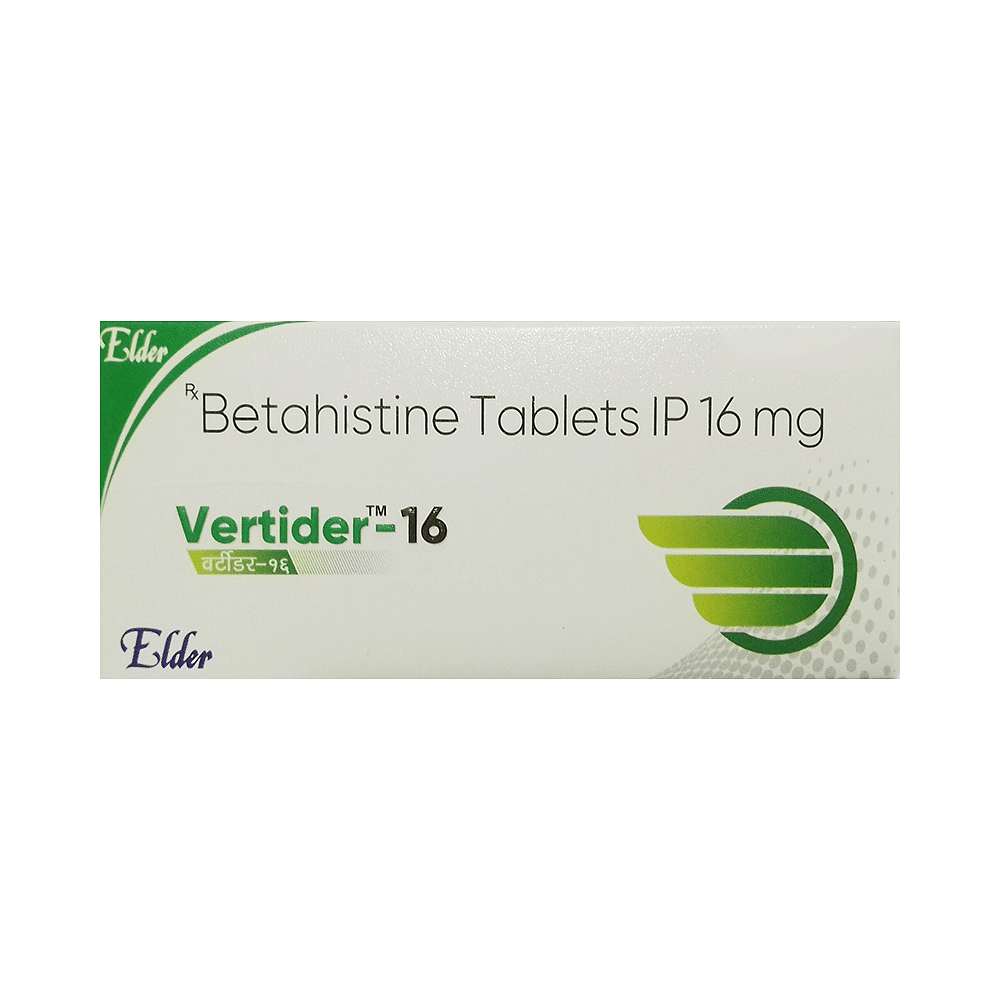
Vertider 16 Tablet

Vernex 16mg Tablet

Robitin 16mg Tablet
Frequently asked questions
What is Meniere's disease? Does it go away?
Meniere's disease is a disorder of the balance and hearing organs in the inner ear. It causes symptoms like vertigo (a feeling of dizziness or spinning), fluctuating hearing, tinnitus (ringing in the ears), and pressure in the ears. Dizziness often comes with nausea and vomiting. Treatment for Meniere's disease depends on individual factors, so discussing your case with a doctor is crucial to determine the most effective treatment plan.
Is Vertihist 16mg Tablet effective?
Vertihist 16mg Tablet can be effective if taken in the dose and duration recommended by your doctor. It's important not to stop taking it just because you feel better, as this could lead to symptoms returning or worsening. If you miss a dose of Vertihist 16mg Tablet, take it as soon as possible and follow your regular dosing schedule.
What are the triggers for Meniere's disease?
Triggers for Meniere's disease can include stress, overwork, fatigue, emotional distress, other illnesses, and pressure changes. Certain foods like dairy products, caffeine, alcohol, and high-sodium foods may also trigger symptoms. A low-salt diet (2 grams per day) may help control vertigo in people with Meniere's disease.
What if I forget to take a dose of Vertihist 16mg Tablet?
If you miss a dose of Vertihist 16mg Tablet, take it as soon as possible. However, skip the missed dose and follow your regular schedule for the next dose. Do not double the dose to make up for a missed one, as this may increase the risk of side effects.
Is stress a reason for vertigo?
Yes, stress can contribute to vertigo symptoms by worsening existing conditions and increasing feelings of dizziness. It's important to address any underlying stress and emotional factors that may be contributing to your discomfort.
What are the causes of vertigo?
Vertigo may stem from various factors such as sudden drops in blood pressure or dehydration. Rapid changes in body position, like getting up quickly after sitting or lying down, can also trigger dizziness. Underlying inner ear issues (Meniere's disease) and problems with the vestibular system are other common causes of vertigo. Remember that vertigo might be a symptom of other underlying conditions such as multiple sclerosis or head trauma.
How long should Vertihist 16mg Tablet be taken?
The duration of treatment with Vertihist 16mg Tablet can vary depending on the individual and their response to treatment. Some individuals might experience quick relief, while others may require longer-term use. It's important to follow your doctor's instructions and take your tablets regularly as they prescribe. If you have any doubts about how long to continue using Vertihist 16mg Tablet, consult with your doctor.
What are the common side effects of Vertihist 16mg Tablet?
Vertihist 16mg Tablet may cause mild side effects such as nausea, stomach pain, bloating, and abdominal swelling. Taking Vertihist 16mg Tablet with food can reduce the likelihood of experiencing these side effects. However, your doctor might advise a different approach depending on individual factors.
Is Vertihist 16mg Tablet effective?
Vertihist 16mg Tablet is meant to be taken as prescribed by your doctor and can help with symptoms. It's crucial not to stop taking it too soon, as this may lead to a relapse of symptoms. For best results, follow the guidance of your healthcare provider.
How long should Vertihist 16mg Tablet be taken?
The duration of treatment with Vertihist 16mg Tablet can vary depending on individual needs. Some people may find relief within a few days, while others might require longer-term use based on their condition and response to therapy. It's important to consult your doctor about the most suitable treatment plan.


